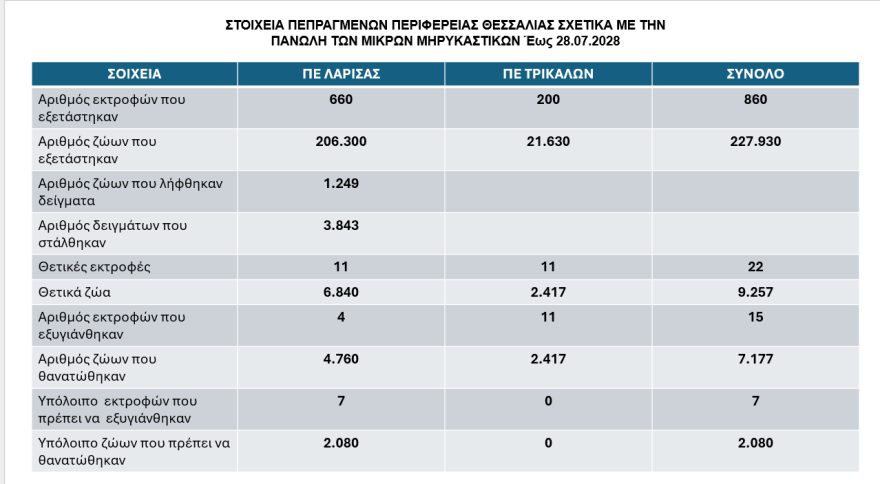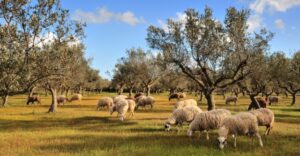The first case of plague in Attica was detected in Aspropyrgos, as confirmed by the Deputy Minister of Rural Development, Christos Kellas, speaking to protothema.gr.
According to the information, the case was detected after a targeted control, following tracing, which means that the animals had not shown any symptoms referring to the disease.
At the same time, according to other protothema.gr sources, there are reasonable suspicions that the initial case of plague in Greece entered the country with a herd of animals from Romania. Therefore, based on the information and data that the Greek authorities have so far, new tracing and new targeted controls are expected to follow.
Besides, in this way the herd in which a case was detected in Corinthia and the one in Aspropyrgos were also checked in a targeted manner.
The region of Attica is on alert
Immediate were the reflexes of the Region of Attica in the appearance of the first case of African sheep and goat plague in a livestock unit in Aspropyrgos, as the Attica Region Governor Nikos Hardalias, had already put all the competent services on alert.
Specifically, for several days, the specialized staff of the Local Centers for Disease Control (LDC) of the Region of Attica had quarantined two livestock farms that had legally purchased live lambs from Romania. After the owners of a unit in Aspropyrgos were notified of suspicious symptoms in their animals, the Region’s veterinarians carried out blood samples, finding the first case in Attica.
Immediately, the strict protocols of the Ministry of Rural Development and Food were implemented, providing for the mass killing and sanitary burial of the unit’s lambs. At the same time, the veterinary services of the Region will carry out continuous and meticulous inspections of the livestock farms in the area to identify and immediately respond to possible cases, and a wide-ranging meeting will be convened to develop a holistic strategy to combat the epidemic.
It is recalled that by personal order of the Attica Region Governor and after consultation with the Minister of Interior Theodore Livanios, teams of the Attica Region were in Thessaly to assist the local authorities.
In addition, Nikos Hardalias had already provided for the strengthening of the mechanisms of the Region, as the Regional Council that met today, Monday 29 July, in Rafina, approved an expenditure of 40,000 euros for the supply of appropriate additional equipment and services for health services.
Movements of sheep and goats across the country have been banned
It is noted that the ban on the movement of goat and sheep movements for breeding, fattening and slaughter throughout the Greek territory was decided by the Minister of Rural Development and Food, Kostas Tsiaras.
The decision was taken as a precautionary measure aimed at limiting the spread and eradication of small ruminant plague.
According to a statement by the Ministry of Agriculture, the competent services, in collaboration with the regions, are continuing the epidemiological investigation on the origin of the outbreaks and the route of possible suspected imports.
As it says “the detection of the case in a livestock unit in Messino in the municipality of Sikionos in Corinthia, as well as the case in Falani in Larissa, were achieved through the tracing process and the cases were detected before the symptoms were even manifested, following a preventive investigation by the veterinary services of the Ministry of Veterinary Affairs in collaboration with the veterinary services of the Regions, based on the route followed by animals imported from a specific country”.

Meanwhile, the closure of slaughterhouses in Thessaly has been extended for another week. It is noted that so far 860 farms have been checked with 22 showing positive cases. In total, 9,257 affected animals were found with 7,177 already killed and the rest are expected to be killed.
Ask me anything
Explore related questions





